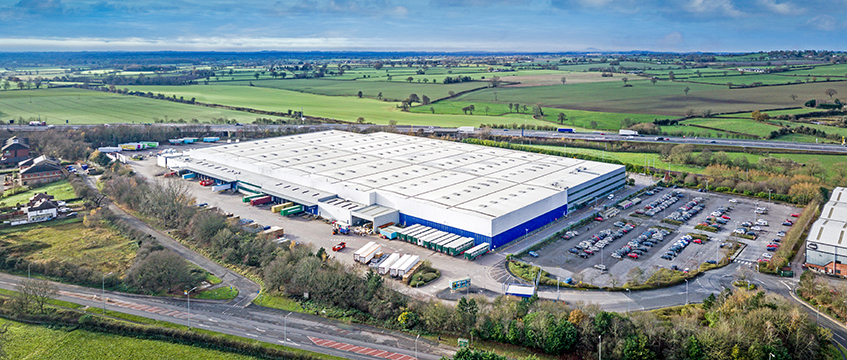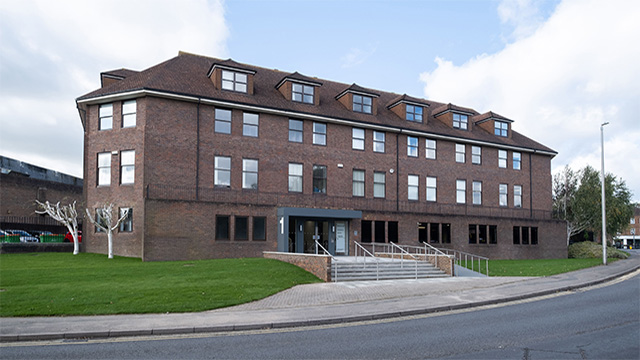The Midlands shines amid cooling logistics take-up
The Midlands has outperformed other regions for logistics take-up during Q1 this year, according to new data, amid a wider slowdown in occupier demand.
The latest research from Gerald Eve found that overall take-up stood at 11.7m sq ft in Q1, its lowest level since before the pandemic. Researchers said it reflected consolidation from some tenants in a weaker operating environment.
Sustainable energy, housebuilding and medical-linked manufacturing were pinpointed as growth pockets during the quarter. Gerald Eve also noted that some high street retailers have made a “late switch” to e-commerce.
The Midlands has outperformed other regions for logistics take-up during Q1 this year, according to new data, amid a wider slowdown in occupier demand.
The latest research from Gerald Eve found that overall take-up stood at 11.7m sq ft in Q1, its lowest level since before the pandemic. Researchers said it reflected consolidation from some tenants in a weaker operating environment.
Sustainable energy, housebuilding and medical-linked manufacturing were pinpointed as growth pockets during the quarter. Gerald Eve also noted that some high street retailers have made a “late switch” to e-commerce.
Researchers said that sustained pressures from widespread increases in utilities, business rates, fuel, staffing and property costs are taking their toll on occupiers. Although those have been “passed on where feasible”, tenants are seeking to make short-term operational efficiencies while bolstering supply chain resilience and net-zero ambitions.
The Midlands accounted for 48% of all UK take-up, said researchers at Gerald Eve.
New occupiers specialised in a range of sectors including automotive, food retail and traditional logistics.
The region’s supply of energy-efficient logistics stock was credited as the main driver of demand.
Prime rents across all regions grew by 3.3% in Q1, driven by above-average growth in the Midlands.
Speculative development starts have slowed in line with market risk and softening occupier demand, as well as the increased cost of debt and construction.
The availability of speculative completions is rising, pushing up the overall availability rate to 4.7% in Q1.
The report also showed that investor sentiment and pricing improved during the quarter.
Gerald Eve partner Jon Ryan-Gill said: “Occupiers are adapting to the current economic conditions, particularly the squeeze on household incomes and the impact of rising interest rates and energy prices, and cutting their cloth accordingly.
“It’s encouraging that such a diverse range of occupiers continue to choose the Midlands as a location for business operations. The spate of recent development has meant that Midlands logistics stock is now more compliant with EPC-related regulation than most UK regions.
“This is a big plus for occupiers given broad-based demand for energy efficient accommodation and in turn will attract investors given the reduced regulatory risk.”
Gerald Eve partner Nick Ogden said: “The relatively liquid UK prime logistics market arguably overcorrected last year and we are now seeing strong levels of interest on quality assets and multiple rounds of bidding.
“UK institutions have returned to the market and investor appetite has broadened up the asset quality risk curve.”
He added: “Pricing has regained some of the lost ground from last year, but the higher-for-longer interest rate environment puts a floor on near-term property yields.”
To send feedback, e-mail pui-guan.man@eg.co.uk or tweet @PuiGuanM or @EGPropertyNews
Photo courtesy of SEC Newgate











